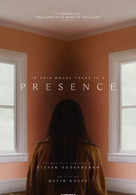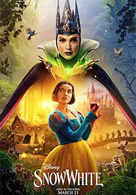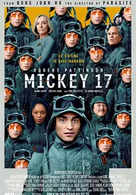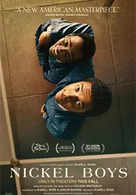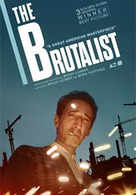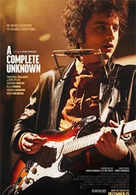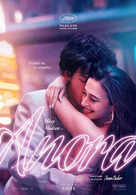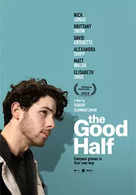Laila Movie Review: A glamorous ride that feels outdated
Laila Movie Review: Critics Rating: 2.0 stars, click to give your rating/review,The film is high on style but falls short on substance.

Critic's Rating: 2.0/5
Laila Story: Sonu (Vishwak Sen), a celebrated makeup artist, finds himself at odds with a local thug and a corrupt cop, leading to unexpected chaos that forces him to take on a new persona—Laila.
Laila Review: Director Ram Narayan attempts to blend comedy, drama, and social commentary in Laila, but the execution remains inconsistent. While the film is high on style, it lacks narrative depth. The theme of gender fluidity and breaking stereotypes is touched upon but never fully explored, as the screenplay prioritises exaggerated theatrics over meaningful storytelling. Uneven direction results in some genuinely entertaining moments being overshadowed by outdated humour and forced drama.
Vishwak Sen shines as Sonu, a skilled makeup artist who, inspired by his late mother, builds a beauty parlour that holds sentimental value. His talent makes him a favourite among the women in his community, much to the frustration of their husbands. This resentment escalates when Rustum (Abhimanyu Singh), a local thug obsessed with finding a bride akin to a Megastar Chiranjeevi’s film heroine, and SI Shankar (Babloo Prithiveeraj), a womaniser who lusts after any beautiful woman, cross paths with him. Their conflict sets off a chain of chaotic events, forcing Sonu to adopt the persona of Laila in a desperate bid to outsmart them.
While the premise sets up an intriguing mix of comedy and drama, Laila prioritises style and flamboyant entertainment over substance, bordering on cringe. The first half establishes Sonu’s world, and the second half shifts focus to his antics as Laila.
Vishwak Sen delivers an effortless and charismatic performance as Sonu, but his transformation into Laila, though commendable in effort, doesn’t feel entirely convincing. The film leans heavily on his screen presence, which he carries well, but the uneven screenplay does little to enhance the narrative. Akanksha Sharma, as Jenny, is bold and glamorous, making a striking impression. While her role doesn’t offer much beyond supporting Sonu’s journey, her energy adds some spark to the film.
Abhimanyu Singh as Rustum and Babloo Prithiveeraj as SI Shankar provide moments of dramatic tension, but their characters border on caricatures rather than well-rounded antagonists. The humour, particularly in their interactions with Sonu/Laila, feels outdated and repetitive.
On the technical front, Richard Prasad’s cinematography ensures a visually appealing experience, effectively capturing the glamour of Sonu’s world. However, the same cannot be said about the rest of the narrative. The editing lacks sharpness, contributing to an inconsistent flow.
Laila struggles with consistency—its messaging is scattered, with fleeting moments of progressive thought. While the film delivers moments of fun and eccentricity, it ultimately falls short of making an impact.
Laila Review: Director Ram Narayan attempts to blend comedy, drama, and social commentary in Laila, but the execution remains inconsistent. While the film is high on style, it lacks narrative depth. The theme of gender fluidity and breaking stereotypes is touched upon but never fully explored, as the screenplay prioritises exaggerated theatrics over meaningful storytelling. Uneven direction results in some genuinely entertaining moments being overshadowed by outdated humour and forced drama.
Vishwak Sen shines as Sonu, a skilled makeup artist who, inspired by his late mother, builds a beauty parlour that holds sentimental value. His talent makes him a favourite among the women in his community, much to the frustration of their husbands. This resentment escalates when Rustum (Abhimanyu Singh), a local thug obsessed with finding a bride akin to a Megastar Chiranjeevi’s film heroine, and SI Shankar (Babloo Prithiveeraj), a womaniser who lusts after any beautiful woman, cross paths with him. Their conflict sets off a chain of chaotic events, forcing Sonu to adopt the persona of Laila in a desperate bid to outsmart them.
While the premise sets up an intriguing mix of comedy and drama, Laila prioritises style and flamboyant entertainment over substance, bordering on cringe. The first half establishes Sonu’s world, and the second half shifts focus to his antics as Laila.
Vishwak Sen delivers an effortless and charismatic performance as Sonu, but his transformation into Laila, though commendable in effort, doesn’t feel entirely convincing. The film leans heavily on his screen presence, which he carries well, but the uneven screenplay does little to enhance the narrative. Akanksha Sharma, as Jenny, is bold and glamorous, making a striking impression. While her role doesn’t offer much beyond supporting Sonu’s journey, her energy adds some spark to the film.
Abhimanyu Singh as Rustum and Babloo Prithiveeraj as SI Shankar provide moments of dramatic tension, but their characters border on caricatures rather than well-rounded antagonists. The humour, particularly in their interactions with Sonu/Laila, feels outdated and repetitive.
On the technical front, Richard Prasad’s cinematography ensures a visually appealing experience, effectively capturing the glamour of Sonu’s world. However, the same cannot be said about the rest of the narrative. The editing lacks sharpness, contributing to an inconsistent flow.
Laila struggles with consistency—its messaging is scattered, with fleeting moments of progressive thought. While the film delivers moments of fun and eccentricity, it ultimately falls short of making an impact.












